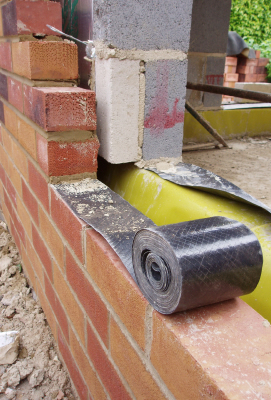
What is a Damp Proof Course?
Modern homes built over the last fifty years normally have cavity walls which is two layers of bricks with a space between them and which can help prevent damp and at the base of the walls a damp proof course (DPC) is usually installed which comprises of a waterproof covering such as slate or a bituminous material.
Damp proof courses are a divisive issue because they are often costly and if not property installed and maintained won't be much use, not forgetting that rising damp due to a poor damp proof course can cause considerable damage to walls, even though an inadequate damp proof course can't be fixed but it can be replaced quite easily. Having one installed professionally is advisable but always try to use a reputable and recommended firm, they should provide you with a damp proofing certificate once the DPC has been installed which can be extremely useful should you put the property up for sale.
However if you want to save money and get stuck in yourself, it is actually not that difficult to do.
The simplest and most cost effective method is to use a chemical injection and all the equipment that is required can be hired.
The DIY process involves drilling the necessary holes around 10mm and ensuring they are downward sloping to about 150mm below floor level. The holes should be angled so they slope to the centre of the wall, holes may be needed on both sides if the wall is especially thick. The brickwork around the holes sweats when there is enough chemical injected into it and the final and crucial step involves sealing the holes with mortar or plastic plugs.
The full kit is available to hire from HSS Hire from £60 for a weekend.
Happy damp proofing!





No comments:
Post a Comment